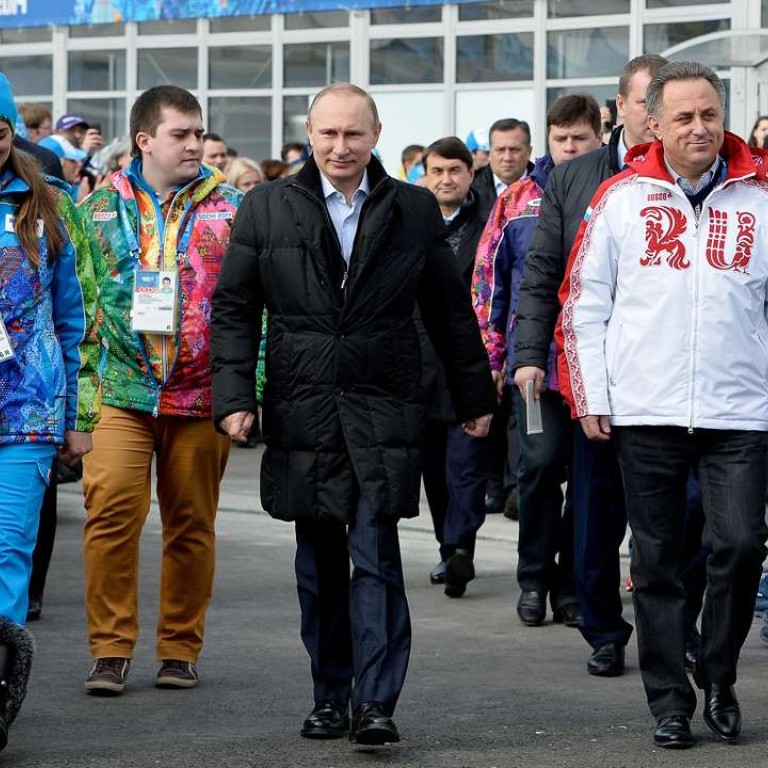
IOC chief shocked at mind-blowing level of Russia’s dope cheating
Calls mount for Moscow to be kicked out of Rio Olympics after investigator Richard McLaren details a state-sponsored system to allow drug cheats to compete at the Sochi Winter Olympics
Russia operated a state-dictated doping system during the 2014 Sochi Winter Olympics and other events, an independent investigator said in a report set to fuel more demands for Russia to be totally banned from the Rio Games.
Canadian law professor Richard McLaren said Russia’s FSB secret service had backed the doping cover-ups by anti-doping laboratories in Moscow and Sochi under orders from the country’s Sports Minister Vitaly Mutko.
International Olympic Committee (IOC) president Thomas Bach described the findings of the report as showing a “shocking and unprecedented attack on the integrity of sport and on the Olympic Games”.
“The IOC will now carefully study the complex and detailed allegations in particular with regard to the Russian Ministry of Sport,” said Bach.
“The IOC will not hesitate to take the toughest sanctions available against any individual or organisation implicated.

The IOC executive board was set to hold a telephone conference overnight to take its first decisions, he said. These may include sanctions regarding the Rio Olympic Games.
Late last night, the World Anti-Doping Agency (Wada) – which had McLaren compile the report – called for Russia to be banned from all international events, not just the Rio Games.
US Anti-Doping Agency chief Travis Tygart said the report revealed “a mind-blowing level of corruption”.
“Our hearts go out to athletes from all over the world who were robbed of their Olympic dreams,” he said.
“Looking forward, we must come together as an international community – comprised of those who truly believe in the spirit of Olympism – to ensure this unprecedented level of criminality never again threatens the sports we cherish.”

In his report, McLaren said: “The Moscow laboratory operated, for the protection of doped Russian athletes, within a state-dictated fail-safe system.
“The Sochi Laboratory operated a unique sample swapping methodology to enable doped Russian athletes to compete at the Winter Olympic Games,” he added.
He said doping failures by athletes at the 2013 world athletics championships in Moscow were also swapped before being sent on for testing by the sport’s ruling body the IAAF.
McLaren said the ploy was used by Moscow’s anti-doping laboratory to avoid doped Russian athletes being detected.
“After the completion of the Moscow championships, the laboratory held a number of positive samples that needed to be swapped by removing the cap and replacing the athlete’s dirty urine before the samples were shipped to another laboratory as instructed by the IAAF,” he asserted.
“The Ministry of Sport directed, controlled and oversaw the manipulation of athletes’ analytical results or sample swapping and the active participation and assistance of the FSB [Russian Federal Security Service], CSP [Centre of Sports Preparation for Russian athletes] and both Moscow and Sochi laboratories.”

Wada had McLaren investigate allegations made by former Russian anti-doping laboratory director Grigory Rodchenkov in a May article in The New York Times.
Rodchenkov, now living in the United States, had told how Russian secret service agents helped the operation to get Russian samples away from international inspectors at the Sochi Winter Olympics.
“I’m unwaveringly confident in our report,” McLaren said, noting the two Russian government-backed groups were “directly involved in the state-overseen programme”.
McLaren said the report was “credible and verifiable” and said Rodchenkov “was a credible and truthful person”.
Rodchenkov said Russia’s sports ministry was actively involved in doping – an accusation Russian officials have denied. He said an intricate doping programme was “working like a Swiss watch” and helped at least 15 Russian medallists.
Additional reporting by Reuters

.png?itok=arIb17P0)